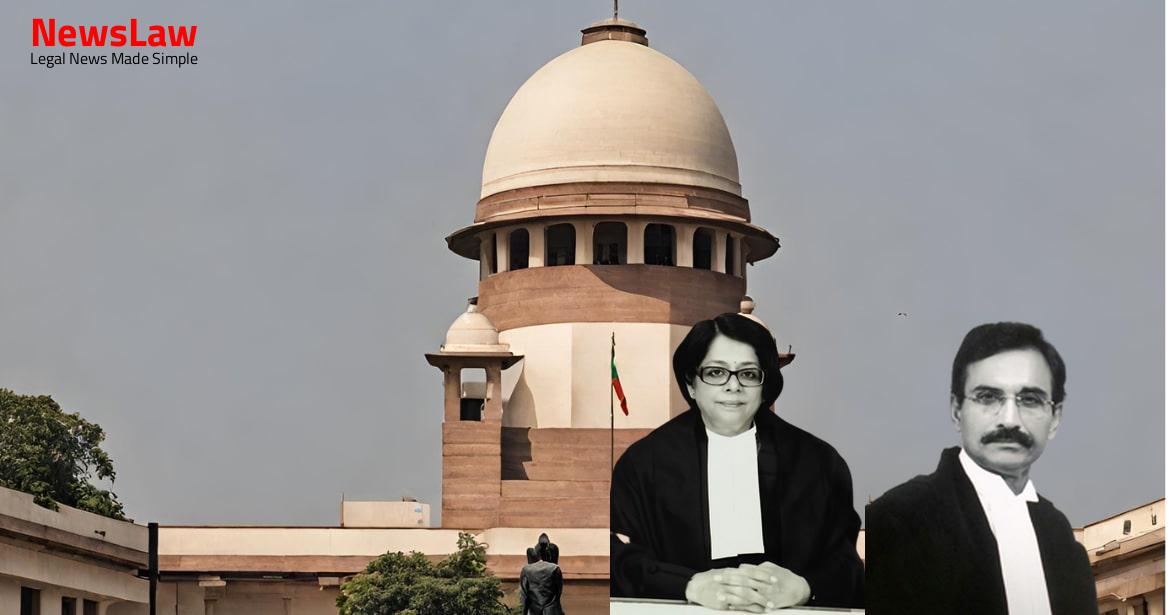The Supreme Court delivered a significant judgement in the case of Master Rishab Sharma v. Maharaja Agrasen Hospital, addressing issues of medical negligence and accountability in healthcare. The case, involving the tragic blindness of Master Rishab due to the failure to conduct ROP check-up, highlights the importance of upholding patient safety and the duty of care in medical practice.
Facts
- Master Rishab Sharma, the child-patient, was represented by his widowed mother Pooja Sharma.
- The Appellant No.1 – Maharaja Agrasen Hospital, two Consultant Paediatricians, and a Senior Consultant Ophthalmologist filed Civil Appeal No. 6619 of 2016 against the impugned Judgment.
- The National Commission found the Hospital and the Doctors guilty of medical negligence for failing to conduct the ROP check up on Master Rishab, leading to total blindness.
- Dr. Rama Sharma, the Gynaecologist who delivered the baby, was exonerated by the National Commission.
- The case involved issues of medical negligence, deficiency in service, and claims for compensation for permanent disability and other damages.
- A further amount of Rs. 1,00,000/- awarded towards costs of litigation.
- O.P. Nos. 2 to 5/ Appellant Nos. 1 to 4 held jointly and severally liable to pay a total of Rs. 64,00,000/- within 2 months.
- Rs. 50,00,000/- to be kept in a Fixed Deposit for Respondent No.1 until attaining majority.
- Rs. 10,00,000/- awarded to Respondent No.2-Complainant/mother for the care of the blind child.
- Interest on the total compensation at 9% p.a.
- Rs. 53,00,000/- awarded to the baby applying the average inflationary principle at a rate of 1% p.a. for the next 59 years.
Also Read: Land Dispute Resolution: A Supreme Court Judgement
Analysis
- Premature babies are not born with Retinopathy of Prematurity (ROP) and retinal disease, which develop after birth.
- The burden of proof in a medical negligence complaint lies with the complainant to prove breach of duty, injury, and causation.
- The IMC Regulations mandate the provision of medical records within 72 hours of a patient’s request.
- Failure to diagnose ROP in premature babies can lead to blindness, and early detection through screening is crucial.
- The standard of care is judged based on protocols prevailing at the time of birth, not at the time of trial.
- Professional misconduct includes failure to maintain and provide medical records promptly.
- Inordinate delays in providing medical records post-discharge can constitute a gross deficiency in service.
- The court must evaluate expert opinions and derive its own conclusions from medical records.
- The duty of care for medical professionals includes informing patients of risks and potential injuries.
- Failure to advise or conduct ROP tests, as mandated by medical literature, can lead to negligence claims.
- Medical practitioners are required to maintain medical records for indoor patients for a period of three years as per Regulation 1.3.
- Failure to provide medical records within 72 hours upon patient request is considered professional misconduct.
- Violation of regulations and failure to maintain medical records can lead to disciplinary action by the appropriate Medical Council.
- Punishments for professional misconduct include removal from the register for a specified period, with restoration options available after the penalty period.
- The removal from the register must be widely publicized in local press and medical publications.
- Prematurity is a common cause of blindness due to the initial constriction and rapid growth of blood vessels in the retina.
- In cases involving special skills like medical practice, negligence is determined by the standard of an ordinary skilled person in that field.
- The Bolam test establishes that a doctor must demonstrate a standard of care equivalent to that of an ordinary competent medical practitioner.
- A doctor’s actions are not considered negligent if they align with a practice accepted as proper by a responsible body of medical professionals.
- The test for negligence is based on the standard of care expected from an ordinary skilled individual with that special skill.
Also Read: Bank Guarantee Dispute: ANZ Grindlays Bank v. Heavy Engineering Corporation Ltd.
Case Title: MAHARAJA AGRASEN HOSPITAL . Vs. MASTER RISHABH SHARMA .
Case Number: C.A. No.-006619-006619 / 2016



